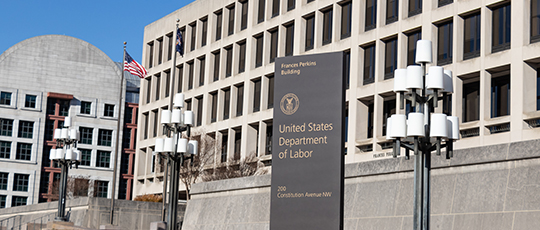For WorldatWork Members
- The Role of Employee Ownership in Total Rewards Strategy, Journal of Total Rewards article
- Putting the Plan in Place: Introducing an ESPP at Aramark, Workspan Magazine article
- Pivot on Pay: Getting Creative to Attract and Incentivize Talent, Workspan Magazine article
- Compensation Structure Policies and Practices, research
For Everyone
- Professional Services Firms and Their Search for Liquidity, Workspan Daily article
- Employee Trust Is a Problem (that TR Pros Can Help Address), Workspan Daily article
- Total Rewards ’25, conference
The U.S. Department of Labor (DOL) on Thursday, Jan. 16, announced that its Employee Benefits Security Administration (EBSA) issued a proposed regulation under the Employee Retirement Income Security Act (ERISA) on the valuation of employer stock that is acquired or sold by an employee stock ownership plan (ESOP).
While that lead paragraph is an alphabet soup of government acronyms, this brief article shares what this means for employers and participating plan employees.
Access a related Workspan Daily article on this subject:
Access a bonus Workspan Daily Plus+ article on this subject:
The EBSA proposal implements a Congressional directive in the SECURE 2.0 Act of 2022 and responds to requests from ESOP stakeholders for guidance. ESOPs are federally regulated retirement plans that primarily invest in stock that is issued by the employer that sponsors the plan. ESOPs are traditionally set up to provide valuable retirement benefits to workers and give them a direct ownership stake in their employer.
As ERISA-governed retirement plans, ESOPs are managed by plan fiduciaries who must prudently oversee the plans’ investments with undivided loyalty to the interests of the plan’s participants and beneficiaries.
Often, employer stock is not publicly traded and there is no ready market price. According to the DOL, without a clear market price, few obligations are more important to proper ESOP plan management than getting the stock price right. The proposed regulation is meant to ensure the plan does not pay more for the stock (or sell for less) than the stock’s fair market value.
By valuing the stock appropriately, fiduciaries make sure the plan’s participants get full value for the employee compensation used on the stock purchase and avoid overpayments that can place employees’ retirement benefits — and even their jobs — at risk.
The proposed regulation gives plan fiduciaries important principles-based guidance on how to value employer stock, consistent with their obligations as ERISA fiduciaries. In addition, the associated proposed exemption gives an especially detailed road map for sellers and plan fiduciaries interested in creating a new ESOP that will purchase employer stock as required by ERISA.
“Employee stock ownership plans are a form of worker ownership that can enable workers to share in the financial successes and profits that their labor helps make possible. Workers’ retirement security, and often their livelihood, depend on ESOP fiduciaries getting the price right,” said Lisa M. Gomez, the DOL’s assistant secretary for employee benefits security. “The proposals give fiduciaries important guidance on how to get these transactions right in compliance with their duties of care and undivided loyalty to ESOP participants and beneficiaries. The proposals, which reflect input received by stakeholders as well as the department’s own experience in reviewing ESOP transactions, provide important guidance for ESOP fiduciaries, and will help safeguard against overpayment for employer stock by ESOPs and their participants.”
The related Notice of Proposed Rulemaking and Notice of Proposed Class Exemption will be published in the Federal Register, with 75-day public comment periods and instructions on how to submit comments.
Editor’s Note: Additional Content
For more information and resources related to this article, see the pages below, which offer quick access to all WorldatWork content on these topics:








